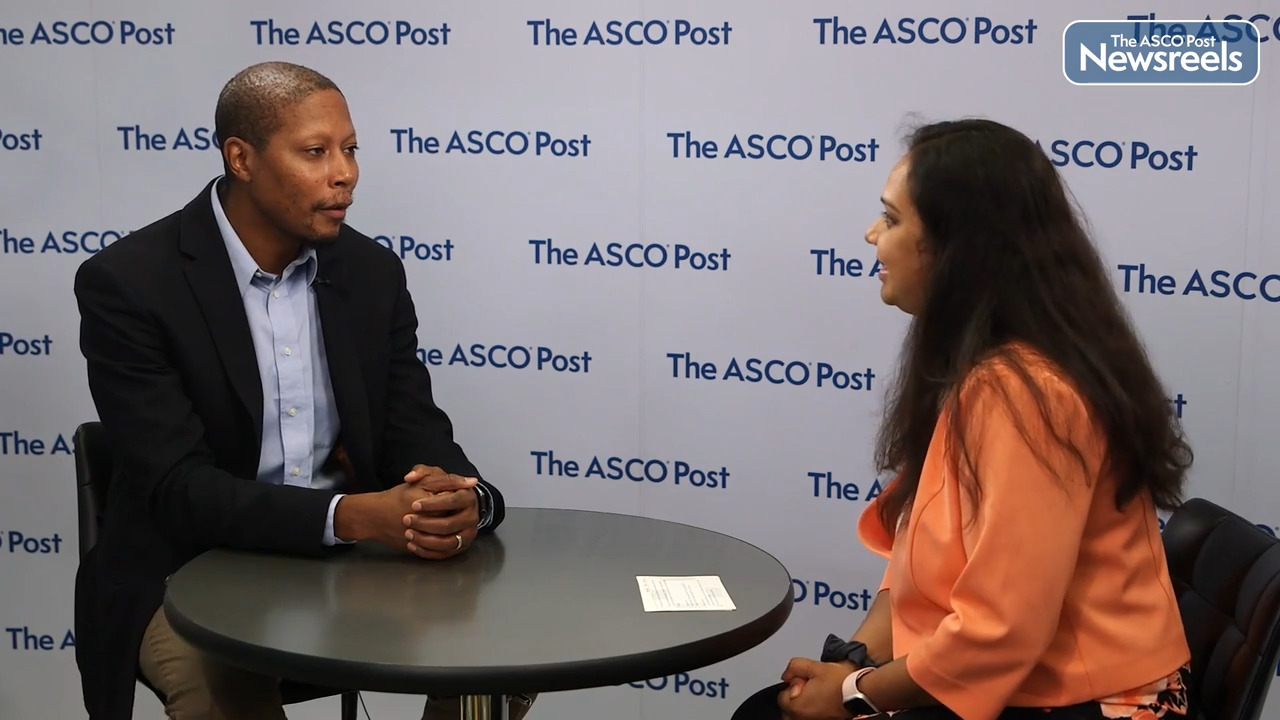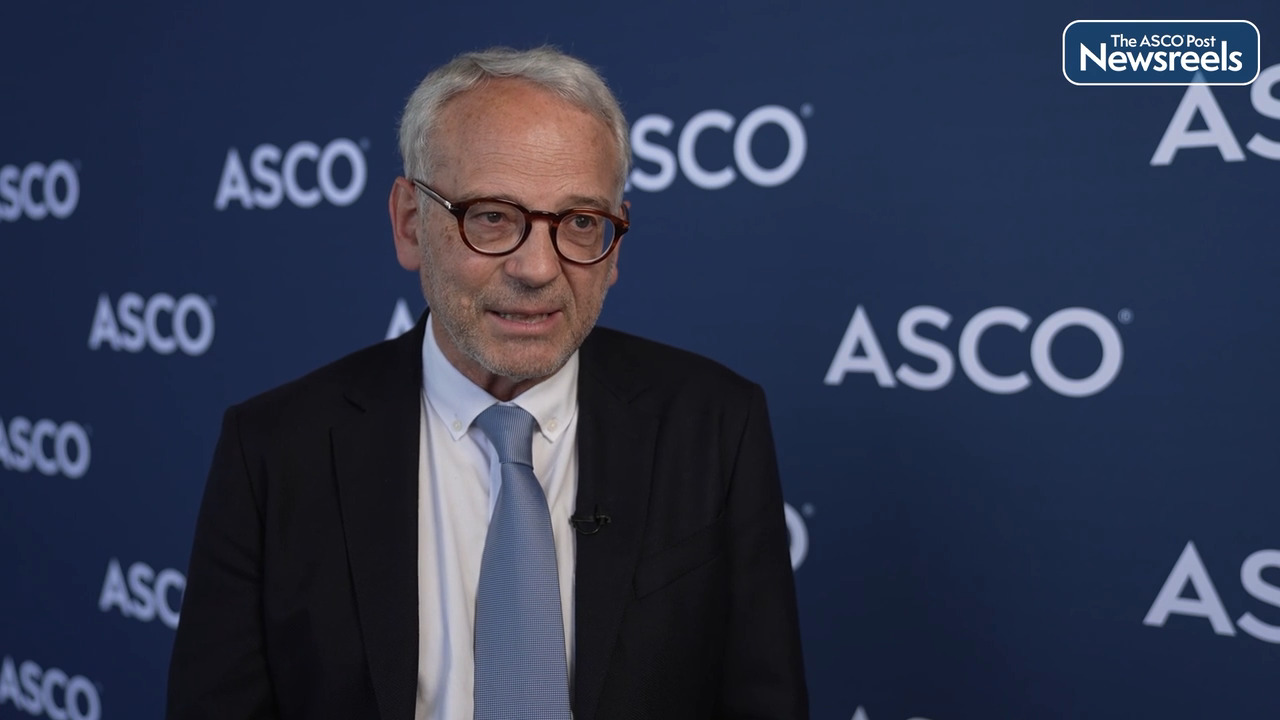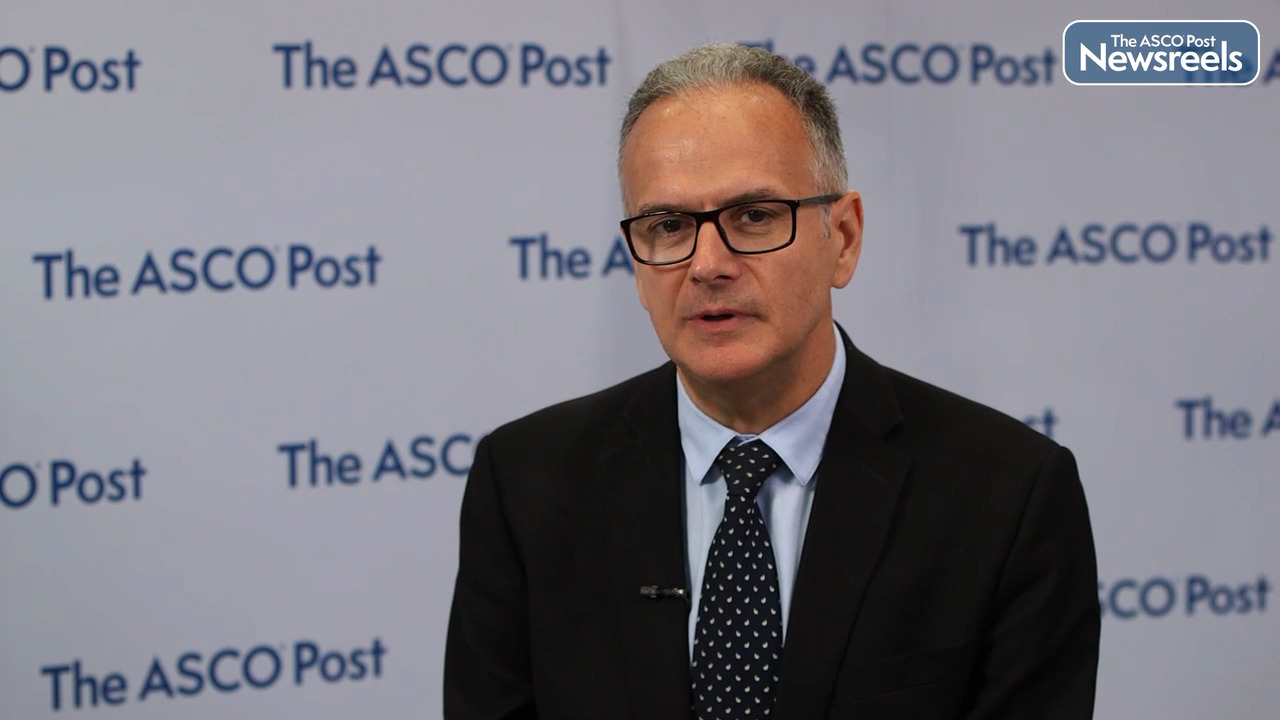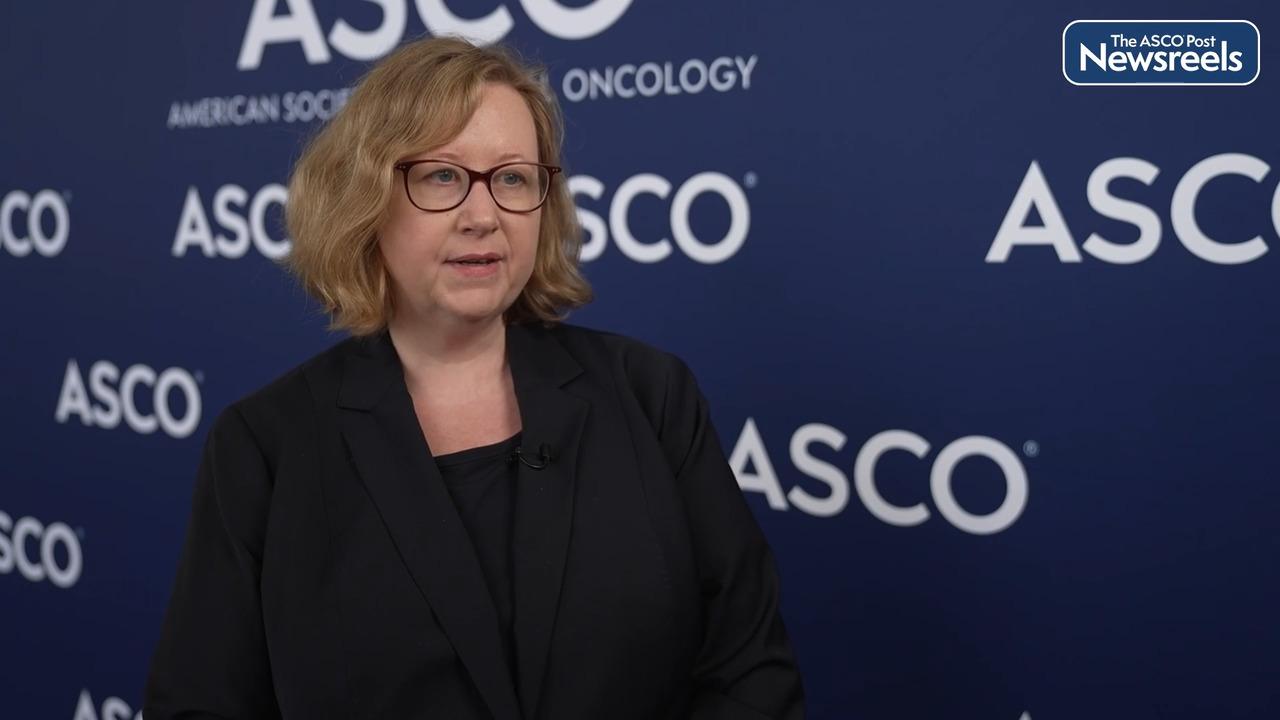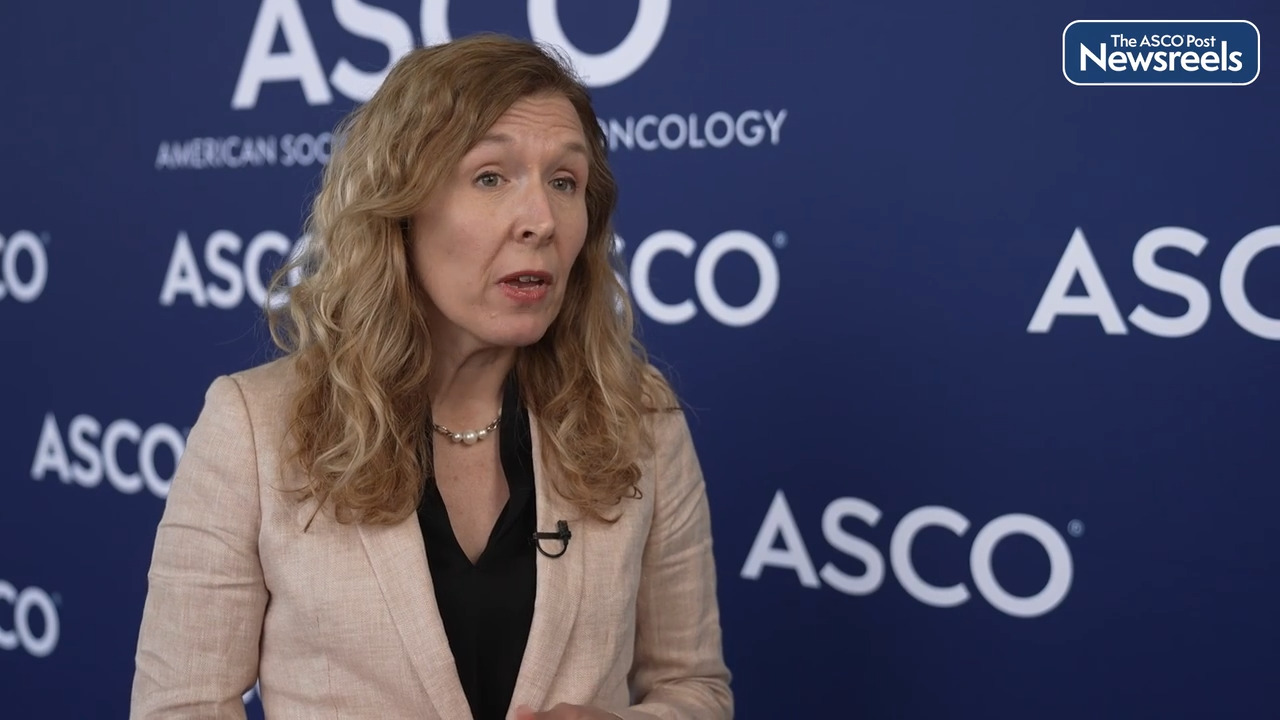Arlene O. Siefker-Radtke, MD, on Metastatic Urothelial Carcinoma: New Data on Erdafitinib vs Chemotherapy From the THOR Study
2023 ASCO Annual Meeting
Arlene O. Siefker-Radtke, MD, of The University of Texas MD Anderson Cancer Center, discusses phase III findings showing that for patients with advanced or metastatic urothelial carcinoma and FGFR alteration who already had been treated with a PD-(L)1 inhibitor, erdafitinib significantly improved overall and progression-free survival, as well as overall response rate, compared with investigator’s choice of chemotherapy (LBA4619).
Transcript
Disclaimer: This video transcript has not been proofread or edited and may contain errors.
Arlene O. Siefker-Radtke:
We now have results from the THOR clinical trial studying erdafitinib in patients who have metastatic surgically unresectable urothelial carcinoma, who've received prior therapy for their tumor. This is the first clinical trial, showing proof of concept benefit from FGF targeted therapy, compared to what's been observed with chemotherapy.
The design of the trial takes patients who've had prior treatment, typically chemotherapy with platinum or carboplatinum, and patients may have had an immune checkpoint inhibitor. There are two cohorts to this trial. The cohort being presented is the group of patients who've had a prior immune checkpoint inhibitor. Patients were randomized between either erdafitinib alone or single agent taxane, or vinflunine, which is approved in Europe. And the results of the trial looked quite good indeed, with it hitting on all three endpoints.
The primary endpoint of the trial was median overall survival, and erdafitinib came in with a statistically significant improvement in overall survival with a median overall survival of 12 months compared to single agent chemotherapy, which was around 7.8 months. We also saw evidence of benefit in progression-free survival and overall survival. The progression-free survival with erdafitinib was around five and a half months. Single agent chemotherapy was half that amount, and the objective response rate for erdafitinib was around 45%, so that's 45% PRs and CRs, while single agent chemotherapy had a response rate of around 11%.
The toxicity reported is similar to what has been observed with other clinical trials of FGF targeted therapy, and as a result of this work, erdafitinib is here to stay as part of the standard armamentarium for the treatment of our urothelial cancer patients.
The ASCO Post Staff
Tycel J. Phillips, MD, and Swetha Kambhampati, MD, both of City of Hope National Medical Center, discuss new findings showing that the real-world effectiveness and safety of brexucabtagene autoleucel were similar to data from the pivotal ZUMA-2 trial in patients with relapsed or refractory mantle cell lymphoma, regardless of prior BTK inhibition, bendamustine, or autologous stem cell transplantation (Abstract 7507).
The ASCO Post Staff
Thierry Conroy, MD, of the Institut de Cancérologie de Lorraine, discusses phase III findings from the PRODIGE 23 trial, showing that neoadjuvant chemotherapy with mFOLFIRINOX followed by chemoradiotherapy, surgery, and adjuvant chemotherapy improved all outcomes, including overall survival, in patients with locally advanced rectal cancer compared with standard chemoradiotherapy, surgery, and adjuvant chemotherapy (Abstract LBA3504).
The ASCO Post Staff
Alberto Bossi, MD, of Institut Gustave Roussy, discusses phase III findings showing that combining prostate radiotherapy with systemic treatment did not improve overall survival in men with de novo metastatic castration-sensitive prostate cancer and low metastatic burden. However, best outcomes (radiographic progression–free-survival and overall survival) were observed in men receiving the standard of care plus abiraterone acetate plus prednisone with radiotherapy (Abstract LBA5000).
The ASCO Post Staff
Penelope Bradbury, MBChB, of Canada’s Princess Margaret Cancer Centre, discusses phase III findings showing that, in patients with treatment-naive unresectable pleural mesothelioma, cisplatin and pemetrexed with pembrolizumab improved median overall survival with acceptable tolerability (Abstract LBA8505).
The ASCO Post Staff
Jennifer A. Ligibel, MD, of Dana-Farber Cancer Institute, discusses a telephone-based weight loss intervention that induced clinically meaningful weight loss in patients with breast cancer who had overweight and obesity, across demographic and tumor factors. Additional tailoring of the intervention may possibly enhance weight loss in Black and younger patients as well (Abstract 12001).
